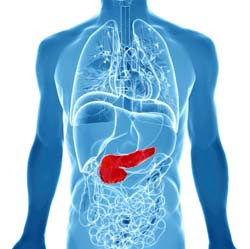Pancreas development unveiled
Organ development in the embryo occurs through a small population of progenitor cells through largely unexplored mechanisms. Identification of the molecular determinants of these processes could be explored in regenerative medicine for restoring organ structure and function. The major role of the pancreas in human physiology is emphasised in diabetes, where the lack of insulin disturbs carbohydrate and fat metabolism. Scientists on the EU-funded 'Novel signals guiding endodermal progenitor cells toward a pancreatic fate' (ENDOPANC) project set out to dissect the mechanisms responsible for pancreatic cell specification and organogenesis. The long-term plan was to utilise this information towards the development of novel therapeutic modalities for diabetes. Previous work by ENDOPANC researchers revealed that the transcription factor Shirin drives pancreatic cell fate during the early steps of pancreas development in both the mouse and the frog. Ablation of this molecule in transgenic mice disrupted epithelial morphogenesis and led to organ hypoplasia during pancreas development. Investigation of the metabolic phenotype of these animals demonstrated reduced insulin production and glucose intolerance. In another part of the project, ENDOPANC scientists used mouse embryonic stem (ES) cells to induce differentiation down the pancreatic cell lineage. Studying the lineage-specific developmental program in the presence of Shirin would help determine the role of this transcription factor. The ES in vitro model system would also facilitate future biochemical analyses aimed at the understanding of the mechanism of this novel pancreatic factor. Collectively, the work by the ENDOPANC team provided fundamental knowledge on the process of pancreatic development. From a diabetes perspective, this information could be utilised in cell-based therapies for obtaining progenitor cells or insulin-producing pancreatic beta cells.







